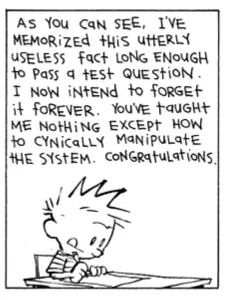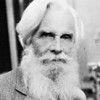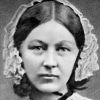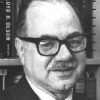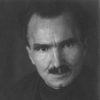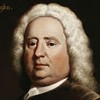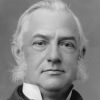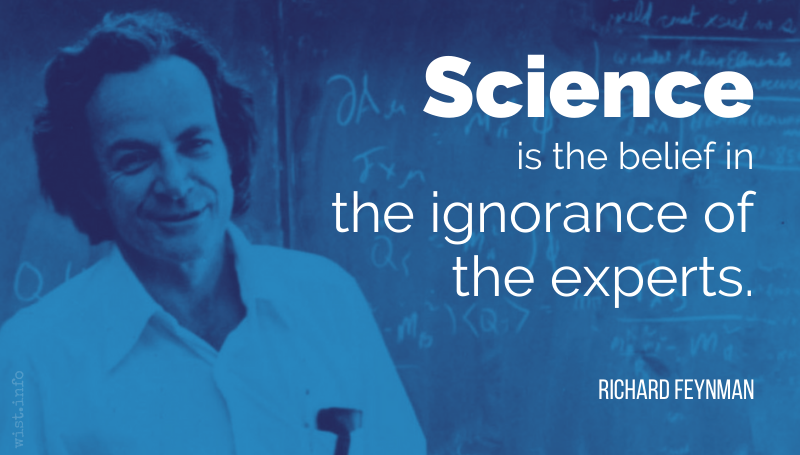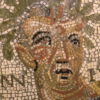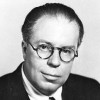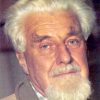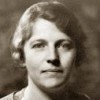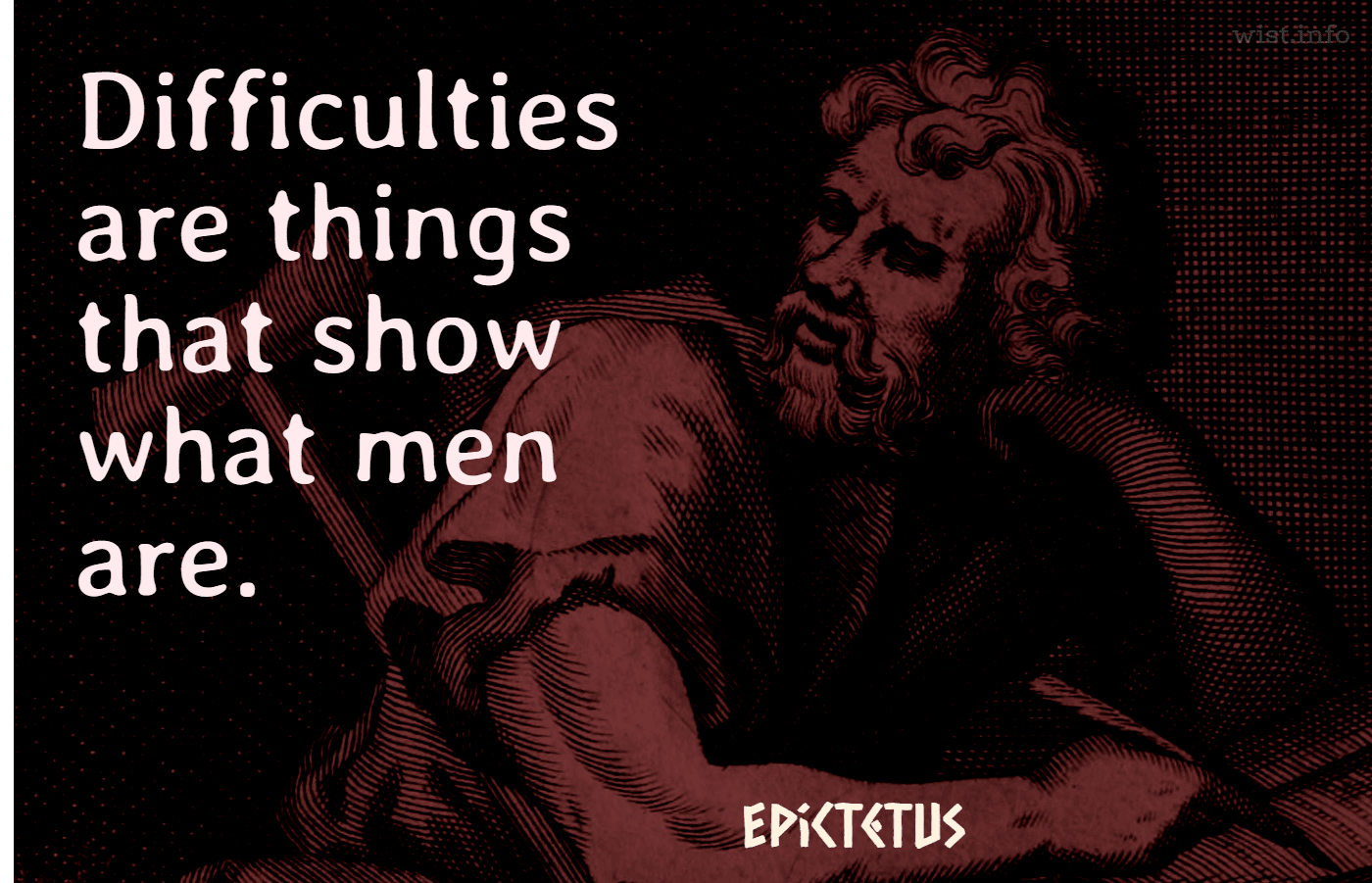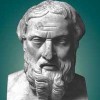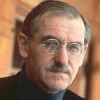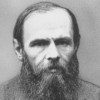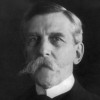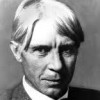In the meanest mortal there lies something nobler. The poor swearing soldier, hired to be shot, has his “honor of a soldier,” different from drill-regulations and the shilling a day. It is not to taste sweet things, but to do noble and true things, and vindicate himself under God’s Heaven as a god-made Man, that the poorest son of Adam dimly longs. Show him the way of doing that, the dullest day-drudge kindles into a hero. They wrong man greatly who say he is to be seduced by ease.
Thomas Carlyle (1795-1881) Scottish essayist and historian
Lecture (1840-05-08), “The Hero as Prophet,” Home House, Portman Square, London
(Source)
The lecture notes were collected by Carlyle into On Heroes, Hero-Worship, & the Heroic in History, Lecture 2 (1841).
Quotations about:
test
Note not all quotations have been tagged, so Search may find additional quotes on this topic.
CALVIN: As you can see, I have memorized this utterly useless piece of information long enough to pass a test question. I now intend to forget it forever. You’ve taught me nothing except how to cynically manipulate the system. Congratulations.
CALVIN: Today at school, I tried to decide whether to cheat on my test or not. I wondered, is it better to do the right thing and fail … or is it better to do the wrong thing and succeed?
On the one hand, underserved success gives no satisfaction … but on the other hand, well-deserved failure gives no satisfaction either.
Of course, most everybody cheats some time or other. People always bend the rules if they think they can get away with it. … then again, that doesn’t justify my cheating.
Then I thought, look, cheating on one little test isn’t such a big deal. It doesn’t hurt anyone … but then I wondered if I was just rationalizing my unwillingness to accept the consequence of my not studying.
Still, in the real world, people care about success, not principles … then again, maybe that’s why the world is in such a mess. What a dilemma!HOBBES: So what did you decide?
CALVIN: Nothing. I ran out of time and had to turn in a blank paper.
HOBBES: Anymore, simply acknowledging the issue is a moral victory.
CALVIN: Well, it just seemed wrong to cheat on an ethics test.
For tho’ I know he loves me,
To-night my heart is sad;
His kiss was not so wonderful
As all the dreams I had.Sara Teasdale (1884-1933) American lyrical poet
“The Kiss,” Helen of Troy and Other Poems (1911)
(Source)
Do not let us speak of darker days: let us speak rather of sterner days. These are not dark days; these are great days — the greatest days our country has ever lived; and we must all thank God that we have been allowed, each of us according to our stations, to play a part in making these days memorable in the history of our race.
Winston Churchill (1874-1965) British statesman and author
Speech, Harrow School, England (1941-10-29)
(Source)
I don’t like people who have never fallen or stumbled. Their virtue is lifeless and of little value. Life hasn’t revealed its beauty to them.
Boris Pasternak (1890-1960) Russian poet, novelist, and literary translator
Doctor Zhivago [До́ктор Жива́го], Part 2, ch. 13 “Opposite the House of Sculptures,” sec. 12 [Yury] (1955) [tr. Hayward & Harari (1958), US ed.]
(Source)
Alternate translations:I don't like people who have never fallen or stumbled. Their virtue is lifeless and it isn't of much value. Life hasn't revealed its beauty to them.
[tr. Hayward & Harari (1958), UK ed., "Opposite the House of the Caryatids"]I don't like the righteous ones, who never fell, never stumbled. Their virtue is dead and of little value. The beauty of life has not been revealed to them.
[tr. Pevear & Volokhonsky (2010), "Opposite the House with Figures"]
The malevolent at times commit good actions, as though they wanted to see whether in fact they afford as much pleasure as good people pretend.
[Les méchans font quelquefois de bonnes actions. On dirait qu’ils veulent voir s’il est vrai que cela fasse autant de plaisir que le prétendent les honnêtes gens.]
Nicolas Chamfort (1741-1794) French writer, epigrammist (b. Nicolas-Sébastien Roch)
Products of Perfected Civilization [Produits de la Civilisation Perfectionée], Part 1 “Maxims and Thoughts [Maximes et Pensées],” ch. 2, ¶ 122 (1795) [tr. Merwin (1969)]
(Source)
(Source (French)). Alternate translations:Wicked people sometimes perform good actions. I suppose they wish to see if this gives as great a feeling of pleasure as the virtuous claim for it.
[tr. Mathers (1926)]The wicked sometimes perform good actions. One might say they wish to see whether it is true that they engender as much pleasure as respectable folk maintain they do.
[tr. Pearson (1973)]
The proof of gold is fire, the proof of woman, gold; the proof of man, a woman.
Benjamin Franklin (1706-1790) American statesman, scientist, philosopher, aphorist
Poor Richard (1733)
(Source)
The Promised Land always lies on the other side of a wilderness.
Havelock Ellis (1859-1939) British sexologist, physician, social reformer [Henry Havelock Ellis]
The Dance of Life, ch. 5 “The Art of Religion,” sec. 4 (1923)
(Source)
We do not protect freedom in order to indulge error. We protect freedom in order to discover truth. We do not maintain freedom in order to permit eccentricity to flourish; we maintain freedom in order that society may profit from criticism, even eccentric criticism. We do not encourage dissent for sentimental reasons; we encourage dissent because we cannot live without it.
Henry Steele Commager (1902-1998) American historian, writer, activist
Essay (1954), “The Necessity of Freedom,” Freedom, Loyalty, Dissent
(Source)
An earlier version of the essay was given as "The Pragmatic Necessity for Freedom," Cooper Lecture, Swarthmore College (1951).
Science is in far greater danger from the absence of challenge than from the coming of any number of even absurd challenges.
Isaac Asimov (1920-1992) Russian-American author, polymath, biochemist
“The Role of the Heretic,” Foreword to Donald W. Goldsmith (ed.), Scientists Confront Velikovsky (1977)
(Source)
No man knows his true character until he has run out of gas, purchased something on the installment plan, and raised an adolescent.
Marcelene Cox (1900-1998) American writer, columnist, aphorist
“Ask Any Woman” column, Ladies’ Home Journal (1955-06)
(Source)
All things are tolerable which others have borne and are bearing.
[Sed significat tolerabilia esse, quae et tulerint et ferant ceteri.]
Marcus Tullius Cicero (106-43 BC) Roman orator, statesman, philosopher
Tusculan Disputations [Tusculanae Disputationes], Book 3, ch. 23 (3.23) / sec. 57 (45 BC) [tr. Yonge (1853)]
(Source)
(Source (Latin)). Alternate translations:
- "Those things are in themselves tolerable, which others have born, and do bear." [tr. Wase (1643)]
- "All things are tolerable which others have borne and can bear." [tr. Main (1824)]
- "What others have endured and endure must be tolerable." [tr. Otis (1839)]
- "Things are tolerable which others have borne and are bearing." [tr. Peabody (1886)]
- "The circumstances at hand are indeed tolerable, since others have tolerated them and continue to do so." [tr. Graver (2002)]
I agree as to the doubtful value of competitive examination. The qualities which you really want, viz., self-control, self-reliance, habits of accurate thought, integrity and what you generally call trustworthiness, are not decided by competitive examination, which test little else than the memory.
Florence Nightingale (1820-1910) English social reformer, statistician, founder of modern nursing
Letter to Lord Edward Geoffrey Stanley (17 May 1857)
(Source)
Regarding selection processes for military officers. This was undergoing reform during the period, including the radical proposal to prevent people from buying their way into lower officer ranks.
If political loyalty is signaled by believing a true story, anyone can fake it. But believing ridiculous and outlandish stories exacts greater cost, and is therefore a better signal of loyalty. If you believe your leader only when he or she tells the truth, what does that prove? In contrast, if you believe your leader even when he or she builds castles in the air, that’s loyalty! Shrewd leaders might sometimes deliberately say nonsensical things as a way to distinguish reliable devotees from fair-weather supporters.
Yuval Noah Harari (b. 1976) Israeli public intellectual, historian, academic, writer [יובל נח הררי]
“Why Fiction Trumps Truth,” New York Times (24 May 2019)
(Source)
A society is most vigorous, and appealing, when both partisan and critic are legitimate voices in the permanent dialogue that is the testing of ideas and experience. One can be a critic of one’s country without being an enemy of its promise.
Daniel Bell (1919-2011) American sociologist, writer, editor, academic
The End of Ideology, Introduction (1961 ed.)
(Source)
Three kinds of souls, three prayers:
1) I am a bow in your hands, Lord. Draw me, lest I rot.
2) Do not overdraw me, Lord. I shall break.
3) Overdraw me, Lord, and who cares if I break.Nikos Kazantzakis (1883-1957) Greek writer and philosopher
Report to Greco, Epigraph (1965) [tr. Bien (1973)]
(Source)
In the Epilogue, this is repeated: "There are three kinds of souls, three kinds of prayers. One: I am a bow in your hands, Lord. Draw me lest I rot. Two: Do not overdraw me, Lord. I shall break. Three: Overdraw me, and who cares if I break!"
Necessity may well be called the mother of invention — but calamity is the test of integrity.
Samuel Richardson (1689-1761) English writer and printer
Clarissa, or, The History of a Young Lady, Letter 47 (1748)
(Source)
He must be a man of little faith, who would fear to subject his own religion to the same critical tests to which the historian subjects all other religions. We need not surely crave a tender or merciful treatment for that faith which we hold to be the only true one. We should rather challenge it for the severest tests and trials, as the sailor would for the good ship to which he trusts his own life, and the lives of those who are dear to him. In the Science of Religion, we can decline no comparisons, nor claim any immunities for Christianity, as little as the missionary can, when wrestling with the subtle Brahmin, or the fanatical Mussulman, or the plain speaking Zulu.
Max Müller (1823-1900) German-British philologist, Orientalist, religious studies founder
Chips from a German Workshop, vol. 1, Preface (1866)
(Source)
Any experience deeply felt makes some men better and some men worse. When it has ended, they share nothing but the recollection of a commitment in which each was tested and to some degree found wanting. They were not alike when they began, and they were not alike when they finished. […] The consequences of the journey change the voyager so much more than the embarking or the arrival.
Murray Kempton (1917-1997) American journalist.
Part of Our Time: Some Ruins & Monuments of the Thirties, “A Prelude” (1955)
(Source)
Science is the belief in the ignorance of the experts.
Richard Feynman (1918-1988) American physicist
“What Is Science?” address, National Science Teachers Association, New York (1966)
(Source)
A sure friend is known in unsure times.
[Amicus certus in re incerta cernitur.]
Ennius (239-169 BC) Roman poet, writer [Quintus Ennius]
Fragment, Scaenica 210 [Vahlen]
As quoted in Cicero, On Friendship [De Amicitia], ch. 17. sec. 64.
Alt. trans.:
- "In unsure fortune a sure friend is seen." [tr. Peabody (1884)]
- "When things get iffy, you find out who your true friends are." [tr. Ehrlich (1995)]
- "A sure friend is tried in doubtful matters." [Source]
- "A friend is never known until one have need." [Source]
- "A friend is never known 'till a man have need." [Source]
- "A true friend is discerned during an uncertain matter." [Source]
- "A certain friend is discerned in an uncertain time." [Source]
Though I’ve never understood how God could expect his creatures to pick the one true religion by faith — it strikes me as a sloppy way to run a universe.
Robert A. Heinlein (1907-1988) American writer
Stranger in a Strange Land, ch. 13 [Jubal] (1961)
(Source)
In the "original uncut" edition (1960, published 1991), this is given as: "I've never been able to understand 'faith' myself, nor to see how a just God could expect his creatures to pick the one true religion out of an infinitude of false ones -- by faith alone. It strikes me as a sloppy way to run an organization, whether a universe or a smaller one."
It is by presence of mind in untried emergencies that the native metal of a man is tested.
James Russell Lowell (1819-1891) American diplomat, essayist, poet
“Abraham Lincoln,” The North American Review (Jan 1864)
(Source)
Blessed is he who has never been tempted; for he knows not the frailty of his rectitude.
Christopher Morley (1890-1957) American journalist, novelist, essayist, poet
Inward Ho!, ch. 1 (1923)
(Source)
It is a good morning exercise for a research scientist to discard a pet hypothesis every day before breakfast. It keeps him young.
Konrad Lorenz (1903-1989) Austrian zoologist, ethologist, ornithologist
On Aggression, ch. 2 (1966)
(Source)
That fortitude which has encountered no dangers, that prudence which has surmounted no difficulties, that integrity which has been attacked by no temptations, can at best be considered but as gold not yet brought to the test, of which therefore the true value cannot be assigned.
Samuel Johnson (1709-1784) English writer, lexicographer, critic
The Rambler, #150 (24 Aug 1751)
(Source)
Yet somehow our society must make it right and possible for old people not to fear the young or be deserted by them, for the test of a civilization is the way that it cares for its helpless members.
Science doesn’t purvey absolute truth. Science is a mechanism. It’s a way of trying to improve your knowledge of nature. It’s a system for testing your thoughts against the universe and seeing whether they match. And this works, not just for the ordinary aspects of science, but for all of life. I should think people would want to know that what they know is truly what the universe is like, or at least as close as they can get to it.
Isaac Asimov (1920-1992) Russian-American author, polymath, biochemist
Interview (1988) by Bill Moyers, A World of Ideas, PBS TV (1988-10-22)
(Source)
(Source (Video))
Part 2 of the interview (the first half aired 1988-10-17). Collected in Bill Moyers, A World of Ideas (1989).
These are times in which a genius would wish to live. It is not in the still calm of life, or in the repose of a pacific station, that great characters are formed. The habits of a vigorous mind are formed in contending with difficulties. Great necessities call out great virtues.
If you have a good scientific imagination, you can think of all sorts of things that might be true, and that’s the essence of science. You first think of something that might be true — then you look to see if it is, and generally it isn’t.
Bertrand Russell (1872-1970) English mathematician and philosopher
Interview by Woodrow Wyatt, BBC TV (1959)
Collected in Bertrand Russell's BBC Interviews (1959) [UK] and Bertrand Russell Speaks His Mind (1960) [US].
To avoid the various foolish opinions to which mankind are prone, no superhuman genius is required. A few simple rules will keep you, not from all error, but from silly error. If the matter is one that can be settled by observation, make the observation yourself. Aristotle could have avoided the mistake of thinking that women have fewer teeth than men, by the simple device of asking Mrs. Aristotle to keep her mouth open while he counted. He did not do so because he thought he knew. Thinking that you know when in fact you don’t is a fatal mistake, to which we are all prone. I believe myself that hedgehogs eat black beetles, because I have been told that they do; but if I were writing a book on the habits of hedgehogs, I should not commit myself until I had seen one enjoying this unappetizing diet.
“You will give me the Ring freely! In place of the Dark Lord you will set up a Queen. And I shall not be dark, but beautiful and terrible as the Morning and the Night! Fair as the Sea and the Sun and the Snow upon the Mountain! Dreadful as the Storm and the Lightning! Stronger than the foundations of the earth. All shall love me and despair!”
She lifted up her hand and from the ring that she wore there issued a great light that illumined her alone and left all else dark. She stood before Frodo seeming now tall beyond measurement, and beautiful beyond enduring, terrible and worshipful. Then she let her hand fall, and the light faded, and suddenly she laughed again, and lo! she was shrunken: a slender elf-woman, clad in simple white, whose gentle voice was soft and sad.
“I pass the test,” she said. “I will diminish, and go into the West, and remain Galadriel.”J.R.R. Tolkien (1892-1973) English writer, fabulist, philologist, academic [John Ronald Reuel Tolkien]
The Lord of the Rings, Vol. 1: The Fellowship of the Ring, Book 2, ch. 7 “The Mirror of Galadriel” [Galadriel] (1954)
(Source)
Times of trouble best discover the true worth of a man; they do not weaken him, but show his true nature.
[Quantas autem virtutes quisque fecerit, melius patet occasione adversitatis. Occasiones namque hominem fragilem non faciunt, sed qualis sit, ostendunt.]
Thomas à Kempis (c. 1380-1471) German-Dutch priest, author
The Imitation of Christ [De Imitatione Christi], Book 1, ch. 16, v. 4 (1.16.4) (c. 1418-27) [tr. Sherley-Price (1952)]
(Source)
(Source (Latin)). Alternate translations:Who is of most virtue appeareth best in time of adversity. Occasions make not a man frail, but they shew openly what he is.
[tr. Whitford/Raynal (1530/1871)]The time of adversity shows who is of most virtue. Occasions do not make a man frail, but they do show openly what he is.
[tr. Whitford/Gardiner (1530/1955)]By occasion of adversity every man knoweth what great vertue is in himselfe, for such occasions make thee not frail, but shew thee what thou art.
[tr. Page (1639), 1.16.14]Besides we shall do well to reflect, that Afflictions and uneasy Accidents are the clearest Indication of a Man's Goodness, and the Degrees of his Improvement. For we mistake extremely in imagining that any thing which happens to us from without, is the real Cause of our doing well or ill; Adversity does not make Virtue or Vice, but exert and draw them into Practice; it does not change the Man from what he was, but only discover what he really is.
[tr. Stanhope (1696; 1706 ed.)]Besides, by outward occasions of suffering from the conduct of others, the nature and degree of every man's inward strength is more plainly discovered; for outward occasions do not make him frail, but only shew him what he is in himself.
[tr. Payne (1803)]Occasions of adversity best discover how great virtue or strength each one hath. For occasions do not make a man frail, but they shew what he is.
[ed. Parker (1841)]Besides, adversity better displays the fortitude and virtues that we possess: for these attacks to not contribute to make us frail, but rather shew us to be what we are.
[tr. Dibdin (1851)]The amount of a man's virtue is best seen in presence of adversity, for its occurrence does not make a man weak, but shows what he is.
[ed. Bagster (1860)]How much strength each man hath is best proved by occasions of adversity: for such occasions do not make a man frail, but show of what temper he is.
[tr. Benham (1874)]Occasions of adversity soonest discover how great virtue or strength each one hath. For occasions do not make a man frail, but they shew what he is.
[tr. Anon. (1901)]For the measure of every man's virtue is best revealed in time of adversity -- adversity that does not weaken a man but rather shows what he is.
[tr. Croft/Bolton (1940)]For the strength that each has will best be seen in the hour of adversity. Because such hours do not make a man weak, but show what kind of man he is.
[tr. Daplyn (1952)]Meanwhile, there is no better test of a man's quality than when he cannot have things his own way. The occasions of sin do not overpower us, they only prove our worth.
[tr. Knox-Oakley (1959)]A man’s true quality is revealed when things are difficult. Events do not make a man weak -- they only show what stuff he is made of.
[tr. Knott (1962)]The strength of one’s virtue is seen more easily when opposition comes. For such opposition does not weaken a man, but shows his mettle.
[tr. Rooney (1979)]For the strength that each person has will best be seen in times of trouble. Such times do not make us weak; they show what we are.
[tr. Creasy (1989)]
But there is one feature I notice that is generally missing in Cargo Cult Science. That is the idea that we all hope you have learned in studying science in school — we never explicitly say what this is, but just hope that you catch on by all the examples of scientific investigation. It is interesting, therefore, to bring it out now and speak of it explicitly. It’s a kind of scientific integrity, a principle of scientific thought that corresponds to a kind of utter honesty — a kind of leaning over backwards. For example, if you’re doing an experiment, you should report everything that you think might make it invalid — not only what you think is right about it: other causes that could possibly explain your results; and things you thought of that you’ve eliminated by some other experiment, and how they worked — to make sure the other fellow can tell they have been eliminated.
Richard Feynman (1918-1988) American physicist
“Cargo Cult Science,” commencement address, California Institute of Technology (1974)
(Source)
“Imagine that you are creating a fabric of human destiny with the object of making men happy in the end, giving them peace and rest at last, but that it was essential and inevitable to torture to death only one tiny creature — that baby beating its breast with its fist, for instance — and to found that edifice on its unavenged tears, would you consent to be the architect on those conditions? Tell me, and tell the truth.”
“No, I wouldn’t consent,” said Alyosha softly.
CALVIN: (wearing a mask and cape, scribbling on his test) Stupendous Man’s stupendous knowledge lets him complete the test with stupendous speed! 1492! The Battle of Lexington! Trotsky! The Cotton Gin! (runs from the classroom) Another triumph for virtue and right! And now, with a whoosh, Stupendous Man is off into the sky! So long kids! Always brush your teeth! KAPWINGGG!
“Perhaps this isn’t just a test of the world,” said Crowley. “It might be a test of you people, too. Hmm?”
“God does not play games with His loyal servants,” said the Metatron, but in a worried tone of voice.
“Whooo-eee,” said Crowley. “Where have you been?”Terry Pratchett (1948-2015) English author
Good Omens, 6. “Saturday” (1990) [with Neil Gaiman]
(Source)
“I mean, maybe you just want to see how it all turns out. Maybe it’s all part of a great big ineffable plan. All of it. You, me, him, everything. Some great big test to see if what you’ve built all works properly, eh? You start thinking: it can’t be a great cosmic game of chess, it has to be just very complicated Solitaire. And don’t bother to answer. If we could understand, we wouldn’t be us. Because it’s all — all –”
INEFFABLE, said the figure feeding the ducks.Terry Pratchett (1948-2015) English author
Good Omens, 7. “Sunday” (1990) [with Neil Gaiman]
(Source)
Crowley speculating to Aziraphale about God's motivations in creating a flawed Universe.
God moves in extremely mysterious, not to say, circuitous ways. God does not play dice with the universe; He plays an ineffable game of His own devising, which might be compared, from the perspective of any of the other players (i.e., everybody), to being involved in an obscure and complex version of poker in a pitch-dark room, with blank cards, for infinite stakes, with a Dealer who won’t tell you the rules, and who smiles all the time.
Terry Pratchett (1948-2015) English author
Good Omens, 2. “Eleven Years Ago” (1990) [with Neil Gaiman]
(Source)
Armageddon only happens once, you know. They don’t let you go around again until you get it right.
Terry Pratchett (1948-2015) English author
Good Omens, 3. “Wednesday” [Crowley] (1990) [with Neil Gaiman]
(Source)
Examinations are formidable even to the best prepared, for the greatest fool may ask more than the wisest man can answer.
Charles Caleb "C. C." Colton (1780-1832) English cleric, writer, aphorist
Lacon: Or, Many Things in Few Words, Vol. 1, § 322 (1820)
(Source)
When men have realized that time has upset many fighting faiths, they may come to believe even more than they believe the very foundations of their own conduct that the ultimate good desired is better reached by free trade in ideas — that the best test of truth is the power of the thought to get itself accepted in the competition of the market.
The country needs and, unless I mistake its temper, the country demands bold, persistent experimentation. It is common sense to take a method and try it: If it fails, admit it frankly and try another. But above all, try something.
Franklin Delano Roosevelt (1882–1945) American lawyer, politician, statesman, US President (1933–1945)
Speech (1932-05-22), Commencement, Oglethorpe University, Atlanta, Georgia
(Source)
Valor is a gift. Those having it never know for sure whether they have it till the test comes. And those having it in one test never know for sure if they will have it when the next test comes.


